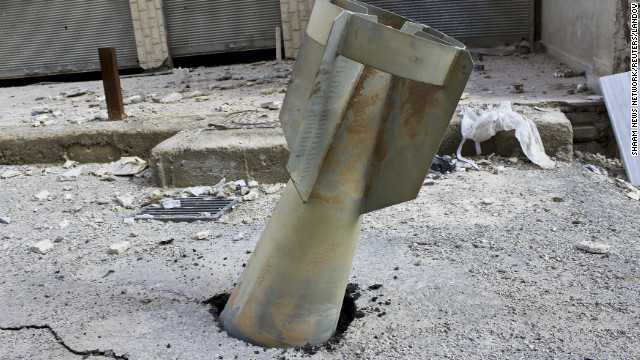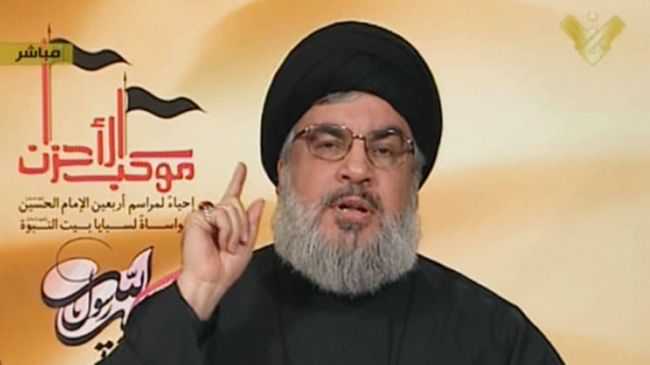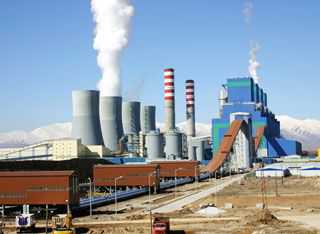(CNN) — U.S. troops arrived in Turkey on Friday to man Patriot missile defense batteries near the Syrian border, Turkish state media said.

The move was made after Syria launched Scud missiles at cities near the Turkish border. In response, the U.S., Germany and the Netherlands have deployed Patriot air defense missiles to the border region to intercept any Syrian ballistic missiles.
U.S. officials: Syria using more accurate, Iranian-made missiles
The missiles and troops are under the control of NATO, but the missiles are to be operated by U.S. forces.
U.S. troops arrive in Turkey
A group of 27 U.S. troops landed in Gaziantep, Turkey, where they will survey the Patriot deployment, Turkish state news agency Anadolu said.
U.S. officials did not release any information about the troops’ arrival, but had said last month that forces would be deployed to Turkey.
“We’ve made very clear to them that we’re going to protect countries in this region,” Defense Secretary Leon Panetta said last month. “We have to act to do what we have to do to make sure that we defend ourselves and make sure that Turkey can defend itself.”
The fight for a helicopter airport
Meanwhile, Free Syrian Army fighters tried Friday for the third consecutive day to wrest control of a helicopter base from government forces.
If successful, the assault on Taftanaz Air Base in northern Syria would shut President Bashar al-Assad’s military helicopter pads and diminish his ability to launch airstrikes in the region.
Opposition and government sources reported that the extremist Nusra Front, which the United States has designated as a terrorist group, was taking part in the assault on the airport.
Al-Assad has exacted retribution on the nearby city of Binnish, where amateur video posted on the Internet shows dozens of smoke plumes marking where ordnance has struck.
Read more: Getting to know Syria’s first family
On Thursday, rebels posted videos of themselves firing on the air base with truck-mounted machine guns and a captured tank, destroying one government tank and appearing to shoot down a helicopter.
CNN cannot confirm the authenticity of videos from the Syrian conflict posted online.
Read more: Patriot missiles a warning to Syria’s al-Assad
Gas station attack in Damascus
In Damascus, an explosion at a gas station near a hospital killed 10 people Friday, Syrian TV reported.
An opposition organization expected the toll to rise as many of the wounded were in critical condition after fire spread to nearby cars and buildings.
The explosion came from a car bomb, the Syrian Observatory for Human Rights said on its Facebook page.
Read more: What’s next for Syria
Appeal for missing U.S. journalist
A picture taken on November 5 in Aleppo shows U.S. freelance reporter James Foley,
A picture taken on November 5 in Aleppo shows U.S. freelance reporter James Foley,
In New Hampshire, the parents of American journalist James Foley appealed Thursday to his kidnappers to release him and inform them of his whereabouts and condition of his health.
Read more: American journalist abducted in Syria
Foley’s father choked up while reading a statement directed at the abductors. “We’d like them to contact us,” he said. “I ask the captors for their compassion and James’ quick release.”
Foley was abducted in November in Syria, where he has worked for a year. He had been detained before while working in Libya but was released by the government.
Read more: Missing American journalist’s parents: Send our son home
The rapidly mounting death toll
At least 129 people were killed across Syria on Friday, according to the Local Coordination Committees, an opposition activist network. CNN cannot independently confirm those numbers.
The overall death toll in Syria has surpassed 60,000 people, the United Nations said Wednesday.
That’s roughly the population of Terre Haute, Indiana; or Cheyenne, Wyoming. It’s how many people would fit in Dodger Stadium, and it’s more than the 50,000-plus U.S. combat deaths in Vietnam.
Read more: U.N.’s Syria death toll jumps to 60,000-plus
On Thursday, al-Assad’s forces bombed the Damascus suburb of Douma with airstrikes. In videos posted on the Internet, residents could be seen combing through rubble and pulling out bodies.
CNN’s Amir Ahmed and Joe Sterling contributed to this report.
via U.S. troops arrive in Turkey; rebels battle for airport in Syria – CNN.com.





